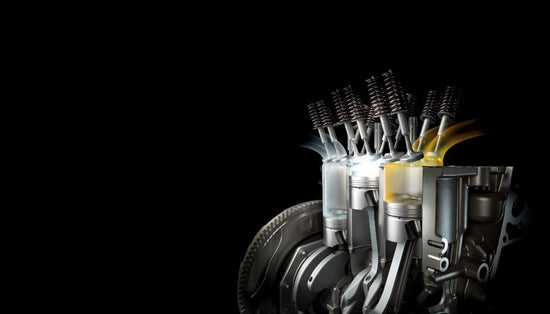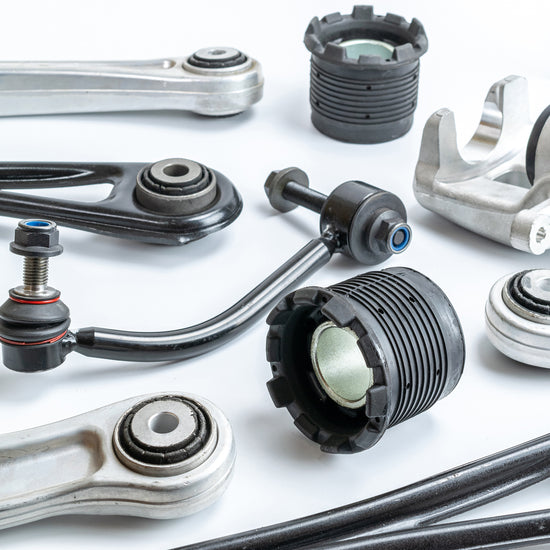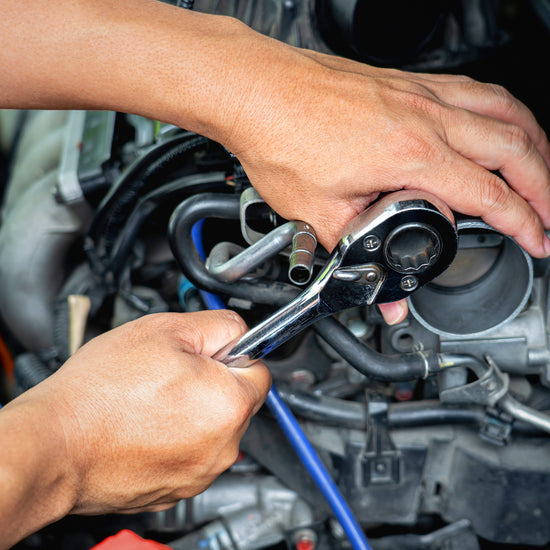The Ford 1.0 EcoBoost engine has earned praise for its clever engineering, strong performance, and impressive fuel efficiency. Found in popular models such as the Ford Fiesta, Focus, and Puma, this award-winning three-cylinder turbo engine has powered millions of cars across the UK.
However, as the first generation ages, many drivers are beginning to experience 1.0 EcoBoost engine problems ranging from coolant leaks to timing belt wear. If your EcoBoost-powered Ford is showing worrying symptoms, understanding the causes and repair options can help you avoid costly damage.
In this article, the experts at Approved Engines in Suffolk explain the most common EcoBoost issues, how to spot them early, and what you can expect in terms of repair costs or reconditioning options.
Common 1.0 EcoBoost Engine Problems
While later versions (2018 onwards) have proven much more reliable, earlier EcoBoost engines, particularly those built between 2012 and 2017, developed several well-known mechanical and cooling issues.
Here are the most common:
1. Coolant Leaks and Overheating
Cause:
A design fault in the early cooling system, particularly the “degas” pipe and thermostat housing, caused coolant leaks and overheating. When coolant escapes unnoticed, it can lead to severe head gasket failure or even a cracked cylinder head.
Symptoms:
-
Coolant warning light on the dashboard
-
Steam or white smoke from the engine bay
-
Sweet smell (burning coolant)
-
Engine running hot or shutting down suddenly
Repair Cost:
Replacing the coolant pipe or housing can cost £250–£450, but if the engine overheats and damages the head, a full rebuild may exceed £1,000–£1,800, depending on labour and parts.
2. Timing Belt Degradation (Belt-in-Oil Design)
Cause:
The 1.0 EcoBoost’s “belt-in-oil” design helps reduce noise and friction but depends heavily on clean, high-quality oil. Neglecting oil changes or using the wrong oil causes the belt to degrade, releasing debris that clogs the oil pump and galleries.
Symptoms:
-
Rattling or ticking noises from the engine
-
Oil warning light or low pressure warning
-
Sludge in the oil system
-
Sudden loss of power or complete engine failure
Repair Cost:
Timing belt replacement typically costs £600–£900, but if internal damage has occurred, a full engine rebuild or reconditioned replacement may cost £2,000–£3,000.
3. Turbocharger Failure
Cause:
The turbo relies on clean, pressurised oil for lubrication. Oil contamination, infrequent servicing, or blocked oil feed lines can cause bearing failure and turbo damage.
Symptoms:
-
Whining or whistling noise under acceleration
-
Noticeable loss of power
-
Blue smoke from exhaust (burning oil)
-
Increased oil consumption
Repair Cost:
A turbo replacement typically ranges from £800–£1,400, depending on parts and labour. In many cases, the root cause (oil starvation or contamination) also needs to be addressed to prevent recurrence.
4. Oil Pressure Problems
Cause:
Degrading timing belt material can block the oil strainer in the sump, reducing oil flow and triggering low pressure warnings. This can starve critical components like the turbocharger or crankshaft bearings.
Symptoms:
-
Oil pressure warning light
-
Tapping or knocking noises from the bottom end
-
Intermittent stalling or limp mode activation
Repair Cost:
Cleaning or replacing the oil pickup and strainer can cost £300–£600, but severe cases requiring bearing or crankshaft repair may push costs over £1,500.
5. Misfires and Carbon Build-Up
Cause:
As the EcoBoost uses direct fuel injection, fuel no longer washes over the intake valves, leading to carbon deposits. Over time, this affects airflow and performance.
Symptoms:
-
Rough idling or vibration at low speeds
-
Reduced fuel economy
-
Engine warning light or misfire codes
Repair Cost:
Intake valve cleaning (walnut blasting) costs around £300–£500, depending on severity.
How to Prevent 1.0 EcoBoost Engine Problems

The EcoBoost engine can be reliable, but only if it’s maintained properly. These proactive steps help prevent the most common issues:
-
Use the correct oil (Ford WSS-M2C948-B) and change it every 6,000–8,000 miles.
-
Monitor coolant levels weekly, especially if you own an early model.
-
Warm up the engine before heavy acceleration, and let the turbo cool down before switching off.
-
Schedule regular servicing with a garage experienced in EcoBoost maintenance.
-
Act immediately if the oil or coolant warning light appears — continuing to drive can cause catastrophic damage.
At Approved Engines, we’ve rebuilt and replaced hundreds of Ford EcoBoost engines and can often detect early signs of trouble before major failure occurs.
Repair or Replace? When a Reconditioned Engine Makes Sense
If your EcoBoost engine has suffered serious internal damage, such as a cracked head, seized turbo, or timing belt failure, a reconditioned replacement is often the most cost-effective and long-lasting solution.
At Approved Engines, our reconditioned Ford 1.0 EcoBoost engines are:
-
Fully stripped and rebuilt by expert technicians.
-
Fitted with OEM-quality parts including new pistons, bearings, gaskets, and seals.
-
Pressure-tested and quality-checked to ensure full reliability.
-
Covered by a comprehensive warranty for total peace of mind.
We also offer professional supply and fitting services at our Suffolk-based workshop, serving Sudbury and the surrounding areas.
Learn more about our Engine Rebuild and Reconditioning Services.
What’s Next
The 1.0 EcoBoost engine delivers excellent efficiency and power, but its complex design means small maintenance lapses can lead to costly repairs. Most issues — from coolant leaks to timing belt degradation — stem from poor servicing or neglect, not inherent design flaws in newer models.
If you’re facing recurring 1.0 EcoBoost engine problems, speak to the experts at Approved Engines. Whether you need a diagnosis, repair, or fully reconditioned engine, we’ll help you find the most reliable and cost-effective solution.
Contact Approved Engines
Located in Acton, Sudbury, Suffolk, Approved Engines are trusted specialists in Ford EcoBoost engine repair, rebuild, and fitting.
Contact our team today to book an inspection or request a quote.







